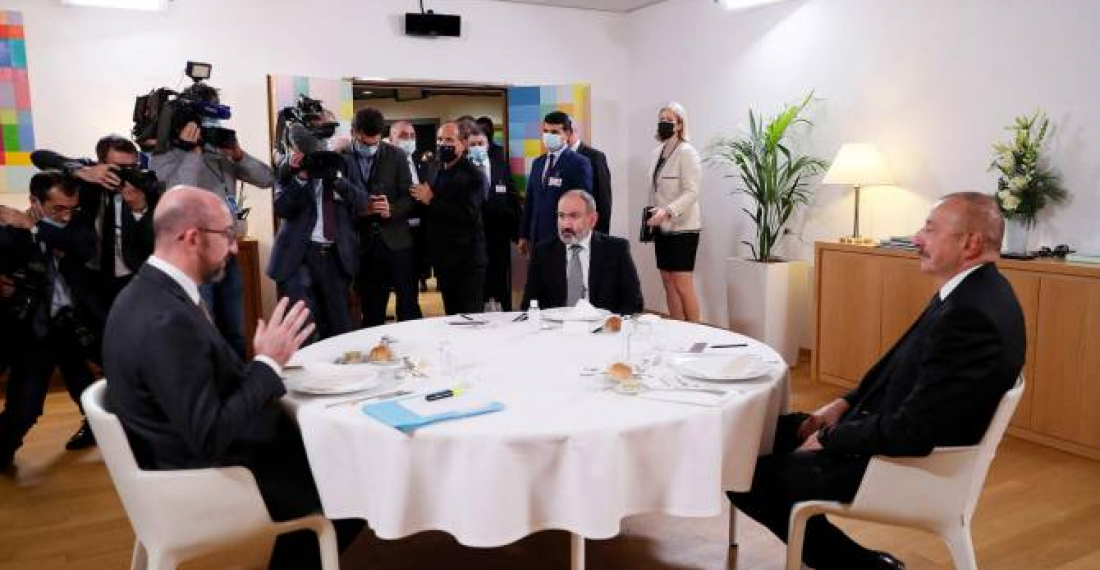President Ilham Aliyev of Azerbaijan and prime minister Nikol Pashinyan of Armenia will meet in Brussels on 6 April at the invitation of European Council president Charles Michel. The three leaders will review developments since their last meeting on 14 December 2021.
In preparation of the leaders' meeting, the European Union on Wednesday (30 March) hosted a meeting of high-level officials from Armenia and Azerbaijan in Brussels to advance joint efforts to find solutions to a range of issues between both countries.
A statement posted on the website of the European External Action Service said, "the meeting between Secretary of the Security Council of the Republic of Armenia, Armen Grigoryan, and Assistant to the President of the Republic of Azerbaijan, Hikmet Hajiyev, was facilitated by EU Special Representative for the South Caucasus Toivo Klaar."
"During substantive discussions, which also included a separate bilateral conversation between Mr Hajiyev and Mr Grigoryan, the participants reviewed the political and security situation and the full spectrum of issues between Armenia and Azerbaijan as a follow-up to the understandings reached during the meeting of leaders of both countries and President Michel, held in Brussels on 14 December 2021.
The participants agreed to meet again over the coming weeks in order to continue discussions, among others on issues raised during the leaders’ meeting of 14 December 2021. Armenia and Azerbaijan will also address issues related to prospects for a peace agreement between them.
The European Union remains committed to continue its engagement towards sustainable peace and stability in the South Caucasus."
source: commonspace.eu
photo: President Aliyev of Azerbaijan, prime minister Nikol Pashinyan of Armenia and European Council president Charles Michel at their meeting in Brussels on 14 December 2021.







